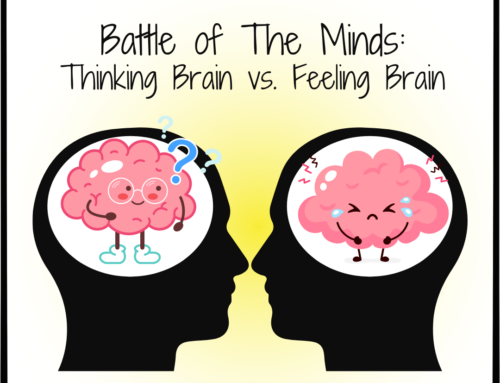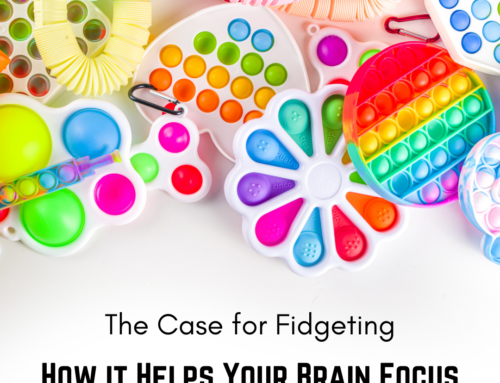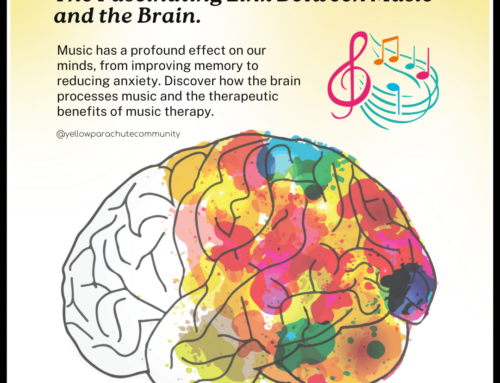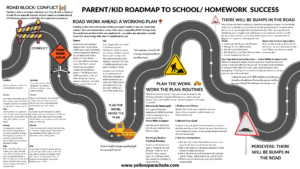Happy Back to School!
Parents, I hope you enjoy your clean kitchen for a few more hours each day. 😉
A thought for your year ahead 🪂 –
”Open your mind to your possibilities. Then center your identity on your possibilities instead of your limitations.”
Practicing this thought daily offers the opportunity to do three important things:
- Take time to define who (and what) you want to be.
- Focus on the possibilities you’ve defined in everything you do – big or small.
- Practice centering your identity and adjusting your actions -> to align with your possibilities.
🎯
How can you use this trio to make it your best year yet?
It’s natural to get caught up in setbacks and challenges. But don’t let them throw you off course. Consistently revisiting the three steps listed above gives you the chance to show up the way you want to, then adjust if you don’t get it right.
Don’t focus on the obstacle.
If you focus the obstacle, what’s limiting you, you lose sight of your destination. And you end up escaping the obstacle at the expense of losing your path. Think about it. What happens when students get angry at the teacher, athletes get angry at the ref, kids get angry at their parents, or employees get angry at their boss or colleagues and act out of that frustration? Maybe they felt better for the moment, but their actions have most likely taken them off the path of who they want to be. If they keep repeating the actions they do out of frustration, they begin to define themselves by the limitation and not the destination.
We all know someone who is, “capable of so much more than they show.” Don’t let yourself down this way. Concentrate on what you’re capable of.
By concentrating on what you’re capable of, instead of what’s limiting you, you can shape your identity in a powerful way.
We’ll continue to revisit this concept throughout the year. Here’s a way to practice the 3 steps right away. Create your to do list according to the areas in which you spend most of your time. We’ll call those areas your “roles.”
When you plan your to do list according to your roles, let’s say:
- student
- athlete
- kid
- personal
- friend
…you can think about what you need to do to show up as “your favorite version of you” in each of those areas. It’s easier to engage your motivation by wondering “what do I need to be successful as my favorite version of me?”
Why is it important to define your favorite version of you? (⚠️Warning: this does reopen the case for using a planner.)
If you don’t know what’s your favorite, then how do you know what’s not your favorite? How can you track your actions toward fulfillment you haven’t defined? The easy answer: you can’t. You don’t need every detail of what you want to do with your life written down, but getting clear on a direction you want to go will CHANGE YOUR LIFE! (🙋♀️Please note ALL capital letters.)
Let’s talk about self-efficacy, and we’ll come back to it throughout the year.
Self Efficacy is a concept used in psychology. It is all about believing in yourself and your ability to succeed. When you have high self-efficacy, you’re more likely to take on challenges and overcome obstacles. And that’s exactly what we want for our students and parents too – to feel confident and capable in all that you do.
So, how can we help you boost your self-efficacy? Well, one way is to set realistic goals and celebrate your progress along the way. Another is to surround yourself with positive influences and supportive people. Quantum Jump Power Planning helps students do both of these things. And Executive Function Skills Instructor training helps parents, teachers, and professionals do the same!
We coach students, parents, and teachers in how to set a vision, goals, and action plan for the week that aligns these three important life skills. We check in with them each week on how their plan is working and what they need to change. We encourage them to ask, “What do I need to be successful here?” in every role of their lives.
If you shift your perspective to focus on your strengths and potential, you can achieve great things. Embracing a mindset of possibility can help you overcome obstacles and reach your full potential. So why not give it a try?
By centering your identity on your possibilities, you can create a more positive and fulfilling life.
Here are some quotations I’ve collected about self efficacy. Which one speaks to you?
Yours in the journey,
Cara
“In order to succeed, people need a sense of self-efficacy, to struggle together with resilience to meet the inevitable obstacles and inequities of life.”
Albert Bandura
“If I have the belief that I can do it, I shall surely acquire the capacity to do it even if I may not have it at the beginning.”
Mahatma Gandhi
“Self-belief does not necessarily ensure success, but self-disbelief assuredly spawns failure.”
Albert Bandura
“I want to thank my parents for giving me confidence disproportionate to my looks and abilities, which is what all parents should do.”
Tina Fey
“If self-efficacy is lacking, people tend to behave ineffectually, even thought they know what to do.”
Albert Bandura
“They are able who think they are able.”
Virgil
“Self-efficacy is the belief in one’s capabilities to organize and execute the sources of action required to manage prospective situations.”
Albert Bandura
“You have brains in your head and feet in your shoes, you can steer yourself in any direction you choose!”
Dr. Seuss
“Strength and growth come only through continuous effort and struggle.”
Napoleon Hill
“People’s beliefs about their abilities have a profound effect on those abilities.”
Albert Bandura
“Self-belief, also called self-efficacy, is the kind of feeling you have when you have, like a Jedi, mastered a particular kind of skill and with its help have been able to achieve your set goals.”
Stephen Richards







